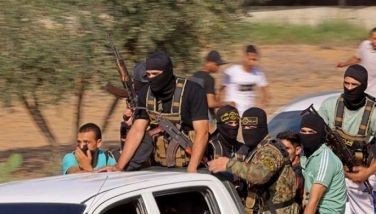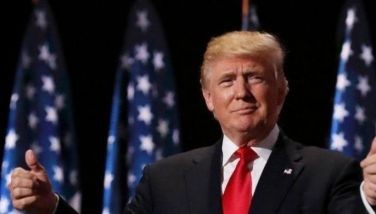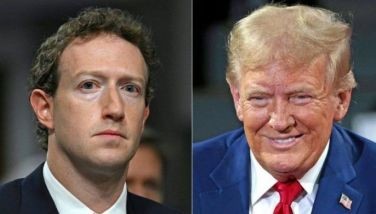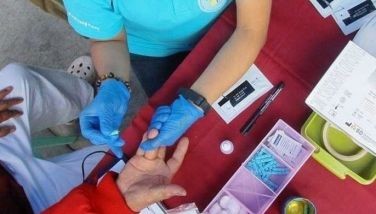China parliament adopts plan to impose security law on Hong Kong
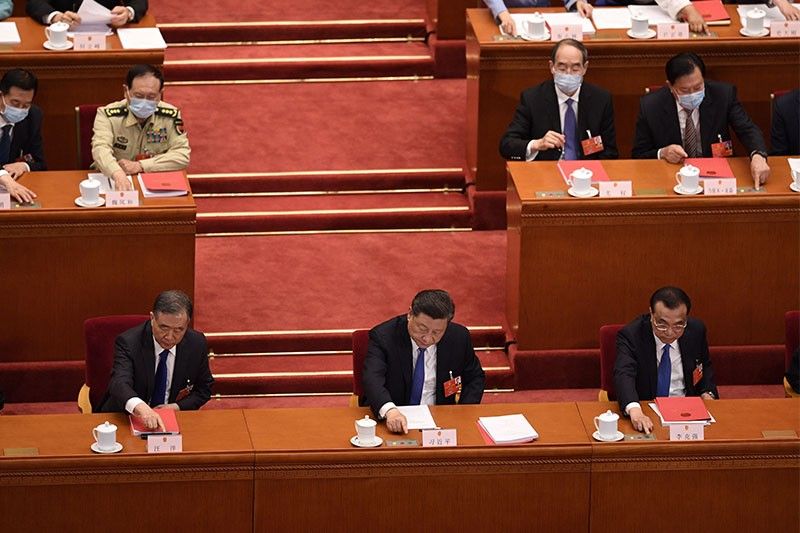
BEIJING, China — China's rubber-stamp parliament endorsed plans Thursday to impose a national security law on Hong Kong that critics say will destroy the city’s autonomy.
Over 2,800 members of the National People's Congress (NPC) voted overwhelmingly in favour of the proposal to draft the law, which would punish secession, subversion of state power, terrorism and acts that endanger national security.
The announcement of the result was met with sustained and loud applause by delegates.
Only one person opposed the proposal, while six abstained.
The law would be directly imposed by mainland authorities, effectively bypassing Hong Kong’s government.
According to a draft of the proposal released last week, the law would allow mainland security agencies to operate openly in Hong Kong.
The NPC Standing Committee –- which is likely to meet next in June –- will now be tasked with formulating the legislation, which Beijing has said must be done "at an early date".
The plans have prompted condemnation from foreign governments, investors and Hong Kong’s pro-democracy movement, who say China is eradicating the freedoms it promised the city under its 1997 handover agreement with Britain.
The United States Wednesday revoked its special status for Hong Kong, alleging the city was no longer autonomous from Beijing, paving the way for future sanctions and the removal of trading privileges in the financial hub.
China has made Hong Kong’s national security law a top priority in this year’s annual parliamentary sessions after huge pro-democracy protests rocked the financial hub for seven months last year.
Last week’s announcement that China would impose the new security law triggered further protests in Hong Kong, although a huge police presence prevented massive gatherings.
NPC Standing Committee Vice Chairman Wang Chen said last week that Hong Kong's delays in implementing its own security law had forced the Chinese leadership to take action.
"More than 20 years after Hong Kong's return, however, relevant laws are yet to materialise due to the sabotage and obstruction by those trying to sow trouble in Hong Kong and China at large, as well as external hostile forces," Wang said.
China has not only refused to address protesters' concerns, but also routinely attacked them as "anti-China chaotic forces" secretly backed by Western powers, bent on destroying the city and seeking full independence from the mainland.
Mainland authorities frequently use the national security law to detain activists, journalists and lawyers under the pretext of "state subversion" -- in some cases for several years without trial or access to lawyers.
Several critical details about the law have yet to be clarified -- including how it will define crimes as well as "foreign interference", whether offenders would be tried in Hong Kong or China, whether Hong Kong’s foreign judges will be allowed to decide national security cases, and whether the law would be retroactive.
Millions march in Hong Kong in a powerful rebuke of an extradition law feared to expose them to China's capricious justice system.
Hong Kong national security police on Thursday detained four people, including the brother of prominent activist Dennis Kwok, one of eight fugitives with bounties on their heads for allegedly breaching national security.
The city's national security department "took in two men and two women from various districts in Hong Kong and Kowloon for investigation," a police source told AFP.
Among the four was the elder brother of former democracy lawmaker Dennis Kwok, who is currently in the United States.
"(Kwok's elder brother) is now under investigation in the Western District police station," the source said.
Three others, "two women and a man", were taken in Tuesday by the national security department, authorities told AFP earlier Thursday.
AFP has requested comment from police on the most recent detentions. — AFP
Three family members of exiled democracy activist Nathan Law have been taken in for questioning on Tuesday, days after authorities issued a bounty on him and seven others accused of breaching the city's national security law.
Police officers from the national security department brought in Law's parents and elder brother without formally arresting them, a police source confirmed to AFP.
"It's understood that officers from the NSD took three people -- Nathan Law's parents and elder brother -- in for questioning," they said.
"So far, no arrest has been made." — AFP
The United States condemns Hong Kong authorities for issuing bounties linked to democracy activists based abroad, saying the move sets a dangerous precedent that could threaten human rights.
Hong Kong police offered bounties of HK$1 million (about $127,600) for information leading to the capture of eight prominent dissidents who live abroad and are wanted for national security crimes.
"The United States condemns the Hong Kong Police Force's issuance of an international bounty" against the eight activists, State Department spokesperson Matthew Miller says in a statement.
"The extraterritorial application of the Beijing-imposed National Security Law is a dangerous precedent that threatens the human rights and fundamental freedoms of people all over the world," he adds, saying China is engaging in "transnational repression efforts."
"We call on the Hong Kong government to immediately withdraw this bounty, respect other countries' sovereignty, and stop the international assertion of the National Security Law imposed by Beijing." — AFP
Hong Kong's top court has quashed the conviction of a journalist in relation to her investigation into an attack on democracy supporters by government loyalists in 2019.
It was a rare victory for the press industry in a city where two major independent news outlets have been forced to shut down since Beijing imposed a national security law in 2020.
"Happy -- I could not think of another word that can describe my mood right now," veteran journalist Bao Choy said outside the Court of Final Appeal after the judgement was handed down.
"I think this kind of happiness belongs to everyone in society." — AFP
Hong Kong police detained Alexandra Wong, a prominent democracy activist better known as "Grandma Wong" on Sunday, the 34th anniversary of the Tiananmen Square crackdown, AFP reporters said.
Wong was carrying flowers in Hong Kong's Causeway Bay shopping district, an area that for years was the site of June 4, 1989, commemorations, before authorities escorted her to a police van. AFP reporters saw a total of six people bundled into police vehicles. — AFP
- Latest
- Trending


















